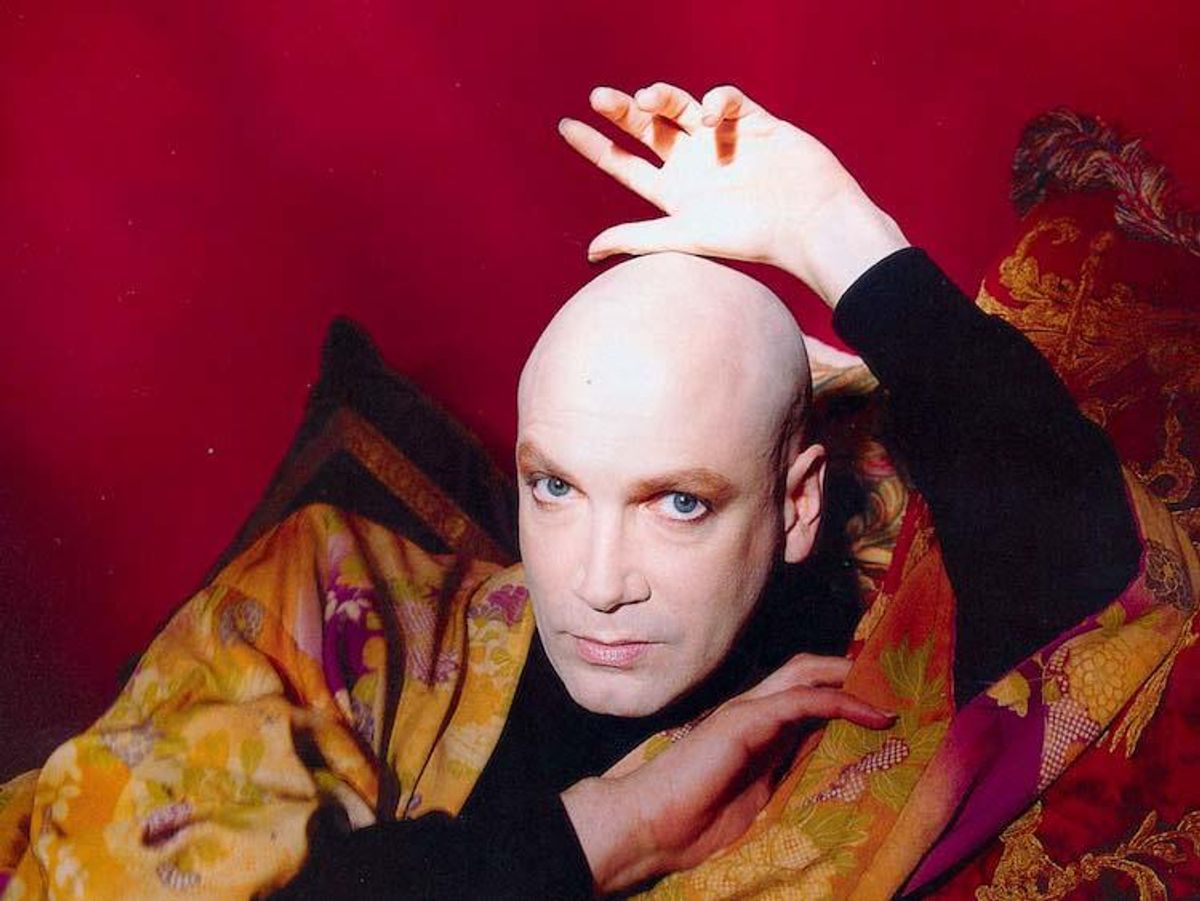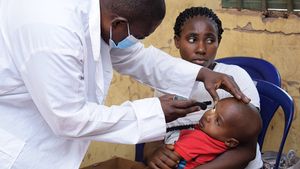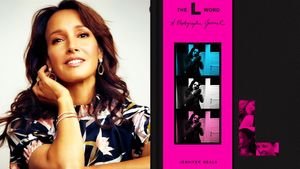This article originally appeared in the April 1997 issue of OUT.
"If somebody wants to write an essay on gay sensibility, just study me. I'm it!" says Charles Busch with some of the shameless grandeur you'd expect from the feisty heroines he's created on stage: just think of the 2,000-year-old diva in Vampire Lesbians of Sodom; Gertrude Garnet, the Nazi-fighting pianist in The Lady in Question; or that notorious Theodora, She-Bitch of Byzantium. There's even a new Busch heroine to be unveiled this fall: the title character in Queen Amarantha, who rules her 17th century kingdom clad in men's clothes (think Garbo's Queen Christina).
Busch's brand of theatrical drag follows in the footsteps of the late Charles Ludlam, founder of New York's Ridiculous Theatrical company, which hones camp and cross-dressing into a comic art in the 1960s and '70s. Busch's Vampire Lesbians, a silly spoof written for a grungy bar in Manhattan's East Village, took off in 1985, becoming one of the longest-running shows off-Broadway. Busch creates not impersonations of iconic divas (no Judy lip-synching) but fil-fledged protagonists in intricate parodies, spun from his encyclopedic knowledge of movie and theater history. "The actresses that I admire were comediennes who were also glamourous, like Lucille Ball or Rosalind Russell," says Busch. "They were these clotheshorses who could also do pratfalls and be outrageous."
And as if to prove that gay sensibility isn't all about men in dresses, Busch's latest incarnation is behind the scenes, writing the new off-Broadway musical The Green Heart, which runs through April 20 at the Manhattan Theatre Club. The comedy, which Busch concocted with composer-lyricist Rust Magee, is about a dissolute playboy who marries an awkward botanist with a huge fortune. Although the tale didn't originate with him--the same story inspired Elaine May's 1970 film A New Leaf-- Busch says he found a way to weave in one of his familiar themes: "fragmented people gaining a new sense of themselves." Directed by Bush's longtime collaborator Kenneth Elliott, it's a typically wacky Busch affair--a tale of murder and romance filled with offbeat characters and farcical situations.
Busch began diversifying his talents after his subversively hilarious hilarious 1991 play, Red Scare on Sunset, in which he played Mary Dale, a well-meaning Pollyanna of a Hollywood star who names names at the McCarthy hearings in the 1950s. He surprised everyone by playing a man in his next production, You Should Be So Lucky. He then acted in movies and other people's plays and even published a novel, Whores of Lost Atlantis, a fictionalized account of Vampire Lesbians' success.
But for a time Busch shies away from writing any more diva roles for himself. "I was temporarily confused after Red Scare and thought being in drag was a mask that kept me from being more direct with the audience," he says. But while putting the final touches to his script for The Green Heart, Busch flexed those drag iva muscles again for a solo off-Broadway show called Flipping My Wig, having realized, he says, "My creativity is so definitely filtered through female personae, in a way it's more me."
So now he's raring to go with Queen Amarantha: part homage to the theater of Sarah Bernhardt (his lifelong idol), part spoof of Garbo movies ("There'll be those lesbian moments she has with her lady-in-waiting"), and part serious exploration of role-playing. "It's good to stretch and try different things," Busch says, "but now I've got a better sense of what I like to do and what I am best at --and that's being the leading lady in the context of a play. So I'm going back to drag full tilt--and I love it!"
But with Hollywood embracing drag queens and heterosexual sports stars donning dresses, could drag be passe in the late '90s? "That only forces you to rethink it and take it further," counters Busch. So hold onto your wigs, girls.

























































































Did 'The White Lotus' waste Lisa's acting debut?